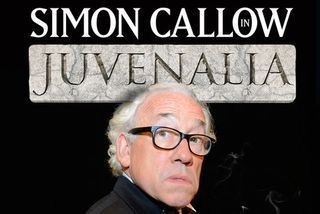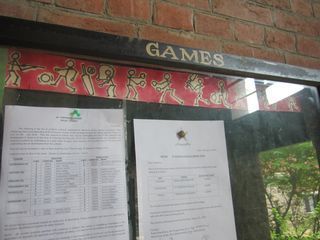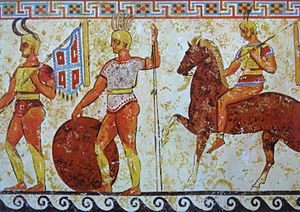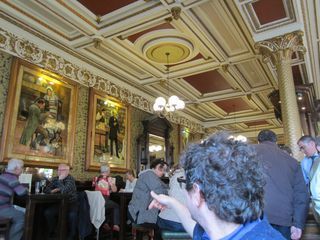Mary Beard's Blog, page 31
September 12, 2014
Car hire rage.
This is a blog on another domestic topic (which I think we all need!). And it is about the strange disjunction in the rules for plastic card use in the UK.
On the one hand, it is easier than ever to use your card online or electronically (think Amazon one-click or the new underground contactless system). On the other, there are more and more restrictions if you want to use cards in some specific circumstances.
That is exactly what happened to the son today. He was bringing his stuff back from Edinburgh before going to Cairo for a few months, and he had booked a car on his card at Herz . The only trouble was that between booking and turning up to get the car, his card -- the only one he had with him -- was eaten by a Clydesdale bank machine. HSBC told him that they could see no reason why that would have happened, but once eaten ... well it was eaten.
Anyway, he turns up at Herz in Edinburgh without his card and explains what has happened. He also says that all the charges can be put onto my card, and I could phone to confirm etc. Alternatively I have another of his carfs at home whose details I could give over the phone. Their answer is that physical presence is required. In other words, in his position, he cannot get a car unless he finds someone to show with a drivers licence and credit card to claim to be the first driver (even though they are not) and name him as second driver.
His mates who are around have credit cards, but not drivers licences; so that draws a blank. At this point I suggest that I go to Herz in Cambridge with card and licence, and they can put it through their computer there. But no, that doesn't satisfy "security". Quite why having a fictitious first driver does satisfy security, heaven only knows.
At this point he goes round to Avis and suggests the same thing: that I go round to the local office with my credit card and licence and start the transaction. But no, "security" again.
Maybe I have missed something here, but what "security" exactly? Aren't these branches in online contact?
Anyway, the son had to take a train in the end and must go back for his stuff with a lot of extra expense. Who might compensate? The Clydesdale bank for eating his card for no reason? The hire companies for a mad "security" system?
Who knows? But I will update.
September 10, 2014
Disappearing post-offices
I confess that I had always been in theory keen on keeping local post-offices open (on the "how would granny manage without one" principle), but I hadn't actually done much to protest at their disappearance.
Which serves me right, as I was well and truly caught out today.
I wanted to send a letter for guaranteed next-day delivery -- though I hadn't actually realised that I needed to do this until about 3.00pm. At this point I was actually knackered. I had been biking around all morning, doing a recording for the BBC, trying to fit in some library time . . . . and so when I got home to deal with the offending letter that needed dispatch, I thought that rather than bike into town again to the central post-office, I would nip in the car.
Big mistake.
The husband had already told me that the nearest post office (on Histon Road), which he had tried to visit earlier, appeared to be on a week's holiday. So I decided to motor up to Girton, where I knew there to be another one. Indeed there is and I found it, but it turns out is only open four days a week in the morning. By this time I was in the car, so decided to nip back into the centre to the little post-office in King St, forgetting that there are barriers in the road that make it impossible to access King St from the Girton end of town.
I was now on a mission. So I decided to try the Chesterton post-office. Indeed that would have been a great idea, but for one thing: it turns out that it has a half day (wrong half) on a Wednesday.
OK. I know what the moral is. If I had just got on my bike and cycled off to the centre of town, I could have had my letter in the post in far less time than my whole unsuccessful post-office trip took. Lesson learnt. All the same, the fact that there is no accessible post office open in West Cambridge on a Wednesday afternoon (unless I missed an obvious candidate) is a bit jaw droppping.
The same might be said for our postal services in general (yes, I do know that "Post Office Counters" is separate from the "Royal Mail"). Currently our post at home arrives some time after 1.00 pm, and the poor postie has been deprived of his bike and has to manoeuvre his van round a town where (as I have just demonstrated today) it's much quicker to go by bike. .... while miraculously delivery companies are managing a seven day a week,speedy, tracked, service (though I do wonder what the wage comparison is).
Something the matter?
September 7, 2014
The appliance of science
I know that some of you have been waiting since my last post about the washing line to discover if I actually bought one.
 Answer: yes, and you see it above as installed in the garden. On the left is its folded away state. The truth is everyone is happy. The husband finds it easy on the eye when packed away. And I have a washing line, which I have to say is dead easy to use and to pull out and push in. No tugging required.
Answer: yes, and you see it above as installed in the garden. On the left is its folded away state. The truth is everyone is happy. The husband finds it easy on the eye when packed away. And I have a washing line, which I have to say is dead easy to use and to pull out and push in. No tugging required.
I should say however that if you are thinking of making a purchase, it is damn heavy  -- and I dont think we could have fitted it ourselves (what is more, you need a proper drill to fix it up). So we got our builder in to assemble it, which upped the price a bit.
-- and I dont think we could have fitted it ourselves (what is more, you need a proper drill to fix it up). So we got our builder in to assemble it, which upped the price a bit.
The other thing I noticed is that the packaging is a bit -- well euphemistic -- about its origin. "Designed in the EU, made in PRC". I spent a few seconds thinking that PRC must be some acronym for a part of Romania or the Czech Republic, until the penny dropped that it was, of course, "People's Republic of China".
So we can't even make a washing line in the EU, I growled amidst my (otherwise) delight.
But while on the subject of appliances, let me recommend a rather cheaper discovery (of interest I fear only to bike riders).
One of the big drawbacks of cycling is the need to equip yourself with appropriate lights for night riding. Dynamos might seem the obvious answer (fixed to the bike and no need for batteries), but every time I've tried that, they have stopped working after a month or so. I particularly the very small lights that you can put in your handbag. Only trouble is that they always manage to switch themselves on. And so you end up delving into your bag for the lights and the battery is flat and you havent got a spare.
Anyway, at my local bike store the other day (Chris's bikes of Girton) I discovered the one pictured above, which just recharges via a USB connection into the laptop. This one is made by Electron, but a quick google produced loads of others (I've obviously been behind the times).
Now how simple is that. No need for all those batteries.
September 3, 2014
Scotland's Judgment of Solomon
I got into trouble a couple of weeks ago by putting my toe ever so slightly into the referendum debate. So why go there again?
Well not to tell anybody how to vote, that's for sure! But because I watched the debate and have been reading some of the literature on both sides -- and have begun to wonder (to be honest) why the NO campaign, by and large, feels so dreary. That's certainly the way I would vote if I were entitled. But there is no doubt that the vision and passion is largely on the other side. Why is that?
It's partly because it's always rhetorically easier for the party advocating change to muster vision -- which makes one fearful of what will happen in any EU referendum (the thought of ending my days with an independent Scotland IN the EU, and little England having LEFT the EU is not a fun thought). And it's partly because some of the strengths of the NO case really DO rest on some of the nitty gritty and rather unsexy detail.
All the same, in what I have read (please tell me I have missed something), there is a decided lack of any powerful case being made for the ideological virtues of unity; it is all about Plan B or how the sums don't add up.
So I fell to wondering what kind of case one might make that had a bit more of a zing. What might some more upbeat symbols and slogans for unity look like?
I'm sure there are better ones, but here goes!
Some Scottish academics started last week to point to the advantages for Scotland of greater UK research funding. But even their intervention was couched in gloomy terms, predicting a brain drain in the event of independence. How about telling us the success stories of full collaboration between Scotland and the rest of the UK? What are the triumphs of Scottish and English science (or humanities research) working together? Not just what will we lose, but what have we gained?
Then the husband pointed out that there were a number of works of art that had been joint purchases between Scottish and English museums, using considerable UK funds. Canova's Three Graces is one (jointly purchased by the VandA and the National Galleries of Scotland); Titian's great Diana and Actaeon and Diana and Callisto are another, shown on a rotating basis in London and Edinburgh. OK not a big issue in the wider scheme of things. I'm sure that all these problems, and many more important ones, can be sorted out and there will be no nasty Judgement of Solomon moment (one and a half graces each?). But there will certainly be endless committees after any yes vote spending months, probably years, doing the sorting. Just think of the expense of that process -- and in some ways the sad pointlessness of it all. Come to think of it, I might have made the Three Graces (all nicely entwined) one of the icons of the No campaign
Most of all though, couldn't we be shouting a bit louder about the fact that we basically occupy a single small land mass (and, no I am not forgetting the isles, but you know what I mean), and that shoving a national border two thirds of the way up is taking us back to the Romans rather than on to the twenty first century. The future really isnt going to lie in small countries. In fact when I saw a Yes blog a few days ago talking about J K Rowling in derogatory terms as an "immigrant" to Scotland (because the poor woman happened to have been born in Gloucestershire), I suddenly realised why I felt viscerally Better Together.
So any ideas about how to get beyond the book keeping approach. What's in the no campaign to get the heart singing?
August 31, 2014
St Stephen's College, Delhi
The place I was hiding out last week was actually New Delhi. I know the Brits get knocked for turning up in foreign places and never stepping outside the hotel compound, but simply sitting by the pool. Well I guess we were the academic equivalent of that. It was the monsoon season (see above) and we spent most of the time in our room, just writing -- and it was heaven, honestly.
But we did venture out, to see St Stephens College, part of the University of Delhi -- designed by one of the husband's imperial architects, W S George.
It was built in the very late 1930s and early 40s, and the husband was interested in the architectural style, part Indian, part Byzantine, part Arts and Crafts. I was more interested in the social architecture, if you can put it that way.
First, I started thinking about where George got his model for an Indian university from. It looked to me (not that I know so much about them, to be honest) is that he had in mind not so much Oxbridge (no staircases for exanple), but a "second ranking" English public school. It was full of quads etc, but all very Spartan and a bit well scrubbed.
But, as we peeked around, I got more entranced by the apparently pristine 1930s state of so much of it. The library lockers were still just as they ever were.
Wouldn't you die for those? And the wonderful glass covered notice boards still decorated as those in my childhood with such headings as "Games".
We went away with a slightly old-fashioned, even quaint view of the place (it was a Saturday morning and we watched late comers creeping into lectures and apologising as they did so).
But, of course, you do always need a bit of local knowledge. Later we met our friend Giles Tillotson (though I say it myself his book on the Taj Mahal is brilliant, and he has recently curated an exhibition at the National Museum in Delhi on a major Indian collector; more details here).He was able to dispel a bit of that quaintness, and explain that things were all a bit edgier (reminiscent, we thought, of Oxbridge back home). Just how elitist was St Stephens? Just how exclusive? And he pointed us to the big local story about the university, namely that a student who was a college gardener's son, and Hindi rather than English speaker, had just been elected president of the students' union.
The elite institution was becoming more open was the line -- and a good reminder that you need more than a tourist's eye.
August 27, 2014
Chapter four
This is my next book writing bulletin (just in case you are interested). I am hiding away for a few days in order to get on with chapter four. This is the chapter -- if we were to use the usual teleological narrative (which I am of course rejecting!) -- in which we see Rome emerging from the shadowy "monarchy", launching the "free Republic" and somewhere near the end of the chapter being mistress of most of Italy we're talking fifth to fourth/early third centuries BCE very roughly).
I say "somewhere near the end" of the chapter because I haven't quite decided where to break between chaps four and five. The point about chapter breaks is that they have to seem to be purposive, at least not fall at some merely arbitrary spot. Yet, at the same time, I am trying not to make it look as if each chapter in the first half of the book simply represents one more stage in Rome's relentless rise to power: the "now she's conquered Italy, and soon she'll be on to the rest of the Med" approach.
To put this a bit more generally, it is actually harder than you might imagine, when writing about this period of Roman history, to avoid the teleology that I so breezily just dismissed. The stuff just seems to write itself if you go along with the Rome's grand plan line....
BUT, but, but . . .
One thing that certain is that Rome didnt have any grand conquest plan in the fifth century BCE. It is just possible that there was some kind of ideology of world domination by the end of the first century BCE, but even that depends on taking poetic conceits very literally, and having a very narrow view of "the world". At the beginning of the free Republic (c 500 BCE) it is just mad to imagine that anyone in Rome was planning to take over Italy. For a start they didn't have a conception of what "Italy" was (and indeed how they envisaged their geographical configuration with their neighbours is itself puzzling and interesting). So the sense that you often get of Roman campaign HQ in which they are moving the salt cellars around the tablecloth to represent the enemy location, 2nd world war style, is quite off. (Though I can tell you that the number of modern writers who talk about Roman "foreign policy" at this period -- which is almost as bad -- in staggering.)
Yet the fact remains that within about 200 years they had conquered what we call Italy, and some kind of explanation is needed. If it cant be because of a grand plan, then it cant be because they were "naturally belligerent" either. No people are "naturally" more warlike than others. They might become more warlike, then "naturalise" it. But that is quite another matter.
The explanation must lie (and I am hardly the first person to say this) somewhere in Rome's fundamental dealings with her neighbours and those she happened to beat. In fact the point is that we shouldnt be thinking of Rome conceiving her position in Italy geographically, as if territorial expansion was the aim. We should be thinking of the Romans striking a series of (over dominating arrangements with) nighbouring people (ie people and communities, not land is the issue here). And it is in those relationships, and the permanence of them, that the reason for Rome's success ("success" that is, if you're not a Samnite) lie.
Even so, we have to reckon that the whole thing was a lot more improvised, a lot more thought-up on the hoof than the usual scemes often imply. I just dont imagine that he Roman in the fifth century sat around discussing what "treaty conditions" they could impose on the Volsci...no, they presumably were tryig to work out how to work out how they were going to co-exist with/take advantage of the Volsci. And again, that's very different.
Put simply, I want to argue that early Republican Rome is all a bit smaller scale, unformalised, messier than grand narratives like to imagine
August 24, 2014
Scotland the brave
I have just spent a weekend in Edinburgh (slightly tentatively after getting into a bit of a Scottish scrape a couple of weeks ago -- but actually we all more or less ended up friends <so thanks to all in the Yes campaign on that!>). The main reason for going, was to give a talk at the fringe, about Roman Laughter... at which I had a great time, and -- to judge by talking to a good few of those attending -- so did a lot of the audience. (It is always amazing to do event likes this.. you meet people you've known on Twitter or thirty years ago or lots of young people doing Classics in school, and their teachers. So thank you everyone!).
But we also ("we": I was there with husband, daughter and son who lives in Edinburgh) did some sights and events. That included as we arrived going and having a drink at the Café Royal near the station. It's maybe  a tourist pub, but the nineteenth-century ceramic panels (you see them above), depicting the scientific and cultural progress of Britain (all blokes so far as I could see, but I may have missed one) were stunning. (They also had some great baronial Scottish stained glass, as you can see on the right.)
a tourist pub, but the nineteenth-century ceramic panels (you see them above), depicting the scientific and cultural progress of Britain (all blokes so far as I could see, but I may have missed one) were stunning. (They also had some great baronial Scottish stained glass, as you can see on the right.)
Then we did a few shows.
I had already tweeted Kieran Hodgson's one man "French Exchange", in truth out of loyalty (he's a mate of the son). But it was actually damned good. Anyone who has ever been on an exchange, or (in my case) received an exchange student will recognise all this. The husband and I instantly spotted Kieran's "French girl" (I 'm afraid it usually is a girl) who simply says "no thank you" to every question you put to her throughout their week's stay. But we giggled at the cameo roles of the long suffering teacher, the teacher's husband who gamely goes along, and the poor bloody French tourist department representative, who has to give the equally long suffering pupils the boring speech about the industrial base of whatever part of the country they happen to be visiting.
It was a great performance around a contemporary (middle class) ritual.
Then the next day, after my gig, we went to Simon Callow's Juvenalia. It was an extraordinary one man show, entirely based on Juvenal's Satires -- as translated by Peter Green. It was done pretty much straight.  And we rather wondered how this would go down. I mean the arcane references in Juvenal's Satires are as arcane as any in classical literature, but the audience was absolutely rapt. A treat.
And we rather wondered how this would go down. I mean the arcane references in Juvenal's Satires are as arcane as any in classical literature, but the audience was absolutely rapt. A treat.
And we had some good food (particularly like The Honours), and some over-plush, over-baronial lodgings, and back to Peterborough on the wonderful East Coast Line. All of us, it has to be said, a bit ill.. either getting over the bug, or in full bug-dom, or just getting it.
August 20, 2014
Augustus' anniversary
Yesterday was the 2000th anniversary of the death of the emperor Augustus, who died on 19 August AD 14 (which given the calendar shift between, of course, isnt exactly 2000 years -- but never mind). I had been hoping to go to a party and consume my first dormouse, but as it happens was too feeble... and too feeble to post about it on the day itself.
All in all, now that I catch up, the day was marked by rather little celebration in the media so far as I can see, There was a nice little piece about Augustus' jokes on the Today programme, and I believe they had done a feature the day before....you can always trust the Today programme to note the right classical dates . The jokes feature is at the very end of the programme here.
Otherwise things were rather muted. Most papers went for the monuments of Augustus that you could (or could not) see in Rome. There was, on one side, lamentation in the Guardian that there was so little opportunity to visit Augustus' Mausoleum, and what a dreadful state it was in anyway. On the other the Art Newspaper hailed the news that the cash had apparently been found for its restoration.
There were however some nice side glances at differences of ideology. Take, for example, what the Investors' Business Daily had to say . . .
. . . which was not a bad word. For them, Augustus was one of the world's greatest statesmen (aka captain of industry, one couldnt help thinking).
Augustus himself would have been delighted. "Few leaders in the history of the world can match the statesmanship or success of Caesar Augustus. Rome's first emperor rescued a nation in the throes of disorder, plus established an enduring polity that would shape the destiny of Western civilization for the next 1,500 years", they oozed.
I have to say the references here weren't exactly up to date. The ancient historians cited were Donald Dudley and Michael Grant (in their prime in the 1960s) and the crowning compliment came from Alfred North Whitehead (died 1947):
""I know of only two occasions when the people in power did what needed to be done about as well as you can imagine its being possible," said English philosopher and mathematician Alfred North Whitehead.The first such era, he said, was Rome under Caesar Augustus; the other, America's Revolutionary period."
Where was Sir Ronald Syme, I wondered, if we were going back that far. Syme had a rather more cynical view.
For a more Symean view, one had to turn to an excellent article in Wales Online, which did raise the nasty thought that Augustus was at best an ambivalent character, whose adept management of power and legacy might hold some lessons for Vladimir Putin. (Were the two very different? we were being asked.)
"If Vladimir Putin is enjoying a little August relaxation, he could do worse than spend a few moments pondering the legacy of this giant of history."
And, of course, the month of August is itself significant (and a giveaway that all might not be as glowing as the Investors' Business Daily imagines). Why is it called August? Well obviously because it was renamed in his honour, not after his death in commemoration, but during his lifetime. It was apparently voted by a grateful senate because so many of Augustus' successes had fallen in the month previously known as Sextilis.
Just how naive would you have to be to imagine it was a spontaneous act of gratitude on the senate's part?
August 16, 2014
A level hype
Now, by "hype", I don't mean that I don't think that A level results are unimportant to the kids taking them. They probably seem the most important and life changing things they have ever faced. Which is true in a way... but let me reassure anyone reading this who has just got their results (good or not so good) that a time will come when you no longer put what you got in your A levels on your cv, and when no one will even ask you about them. Blessed relief it is too.
I will now hereby confess what I haven't been asked to confess in more than 20 years that -- although I did get 3 A's in Latin, Greek and Ancient History back in 1972 -- I only got Merits, not Distinctions in my S Level Latin and Greek. Not only does no one now give a toss, but very few people can even remember what S Levels were. There is nothing so well and truly dead as a dead exam.
No, what I am referring to is the newspaper frenzy of interest in the whole results ritual.
The bottom line is that students now are no more or less smart than in "my day", they are probably over all better taught, and although they know different things from what we knew, and although I would like the priorities of some of the exams to be differently targetted, I dont see any real evidence for "dumbing down".
It is salutary to read, as I did a few weeks ago (and have no reason not to trust the source) that in 1959 -- the hey day of the grammar schools -- only 9% school pupils overall got 5 O'levels at whatever grade. The truth is that we are rightly expecting more of more of them.
Anyway, because I was travelling, I had a chance yesterday to catch up on the papers' thoughts on the results across the board. And pretty dismal reading it made, too.
The overall pass rate we are told had "dipped" for the first time in 32 years from 98.1% last year to 98% this year. If this is statistically significant, someone better qualified than I am had better say; but I would be very surprised if so. And I would be even more surprised if it was anything to do with Mr Gove.
Likewise we might be pleased that Computing has had an 11% increase in takers, surely that must be correlated in some way with the 9% decrease in ICT (information and communication technology). It suggests a shift to between two different version of IT skills, and we need someone who actually knows to explain the significance.
As for the rest, I dread to think how long battalions of poor journos (sometimes helped by proud schools and parents) have been scouring the country to find identical twins who are likely to get the same A levels result (preferably one goimg to Oxford and one Cambridge, or some brave cancer survivor who has just done brilliantly even though some of the papers were taken in hospital, or a kid who spoke no English aged 12 and will now be going to read Medicine with a clutch of A stars....or worse the unfortunate, even if very clever, young person who has collected a record breaking roster of 12 A stars, plus a couple of desultory As.
If someone could explain to me what the point was of taking 12 A levels, working yourself to death and having no time for all the other things teenagers ought to be doing (like grouching and growing up), again I would love to know.
Meanwhile cant we just leave the kids who have done well, and those who have not done as well as they would have hoped, to celebrate or console themselves in private.
(Especially for those of you reading this abroad, you can get a flavour of the reports here and here and here.)
August 11, 2014
Money-laundering through the John Lewis partnership?
I know that moaning about how you are treated by John Lewis must be the most privileged complaint in the western world. But I am going to moan none the less. Partly because if this happens with safe little middle-aged, middle-class me, heaven only know what happens to the younger, less securely employed when they come to do try to do similar things. There is more than just a privileged bleat here, privileged bleat though it might be.Apology over.
The saga starts way back. The husband and I have had a John Lewis account card for as long as I remember, more than 30 years. It is I think in his name, but I have all that time held a joint card -- as have our children after an age at whch they could be trusted with one. All the time, no problem, paid off at the end of each month regular as clockwork (and recently, as regular as direct debit). A few years ago, they started pressing us to go for a "partnership card". No thanks we thought. This card gives you some "rewards" you probably dont want, but is actually a credit card (unlike the standard account card). The last thing we wanted was another credit card.
I guess we knew we were living on borrowed time, but a few weeks ago a letter came saying that the account card was being scrapped, and we would all have to move to the partnership card (I think that John Lewis were getting rid of their accounts department and farming out to HSBC, but I dont know that for a fact).
This wasn't perfect. We had 4 cards in total (husband, me, and two grown up kids), we would now only be allowed a maximum if 3 (son was waved goodbye to at this point). The husband went into the local John Lewis and got a credit check (yes after 30 years of paying the bloody bill off on time, you still need a credit check), and then applied for the two more cards we were allowed.
Within a week a pin number had arrived for the daughter. And a week after that a partnership card for her. But nothing for me.
Just yesterday a letter arrived for the husband saying that he had applied for an "additional cardholder" (not named -- but I assume it was me). According to money laundering regulations 2007 I (if it was really me who was concerned-- that not clear) would have to produce two documents : either an original benefits agency letter (dont have one) or an original HMRC doc of last 4 months (might have). If I didnt have one of those I could send a certified copy of my passport (at considerable expense from lawyer etc). In addition, I was to send an original utility bill, or council tax bill, or whatever.
OK John Lewis. First I wonder why I am asked (if it is me -- the anonymity on the letter is odd) for my passport details etc though my 28 year old daughter is not. I strongly suspect that it is is because I do not have my husband's surname (unlike my daughter). So is there an issue here about wives who do not have the same name as their partners? Second, I am baffled why I am asked for documents that I see no reason to produce after 30 years of prompt paying (my landline phone bill, a UK bank statement...? come on?)
As I said.. this is a privileged bleat. But what the hell must people suffer who have less of a bank balance than me.
By the way John Lewis, you are close to losing my custom (a minnow but there you are)
Mary Beard's Blog
- Mary Beard's profile
- 4110 followers



















